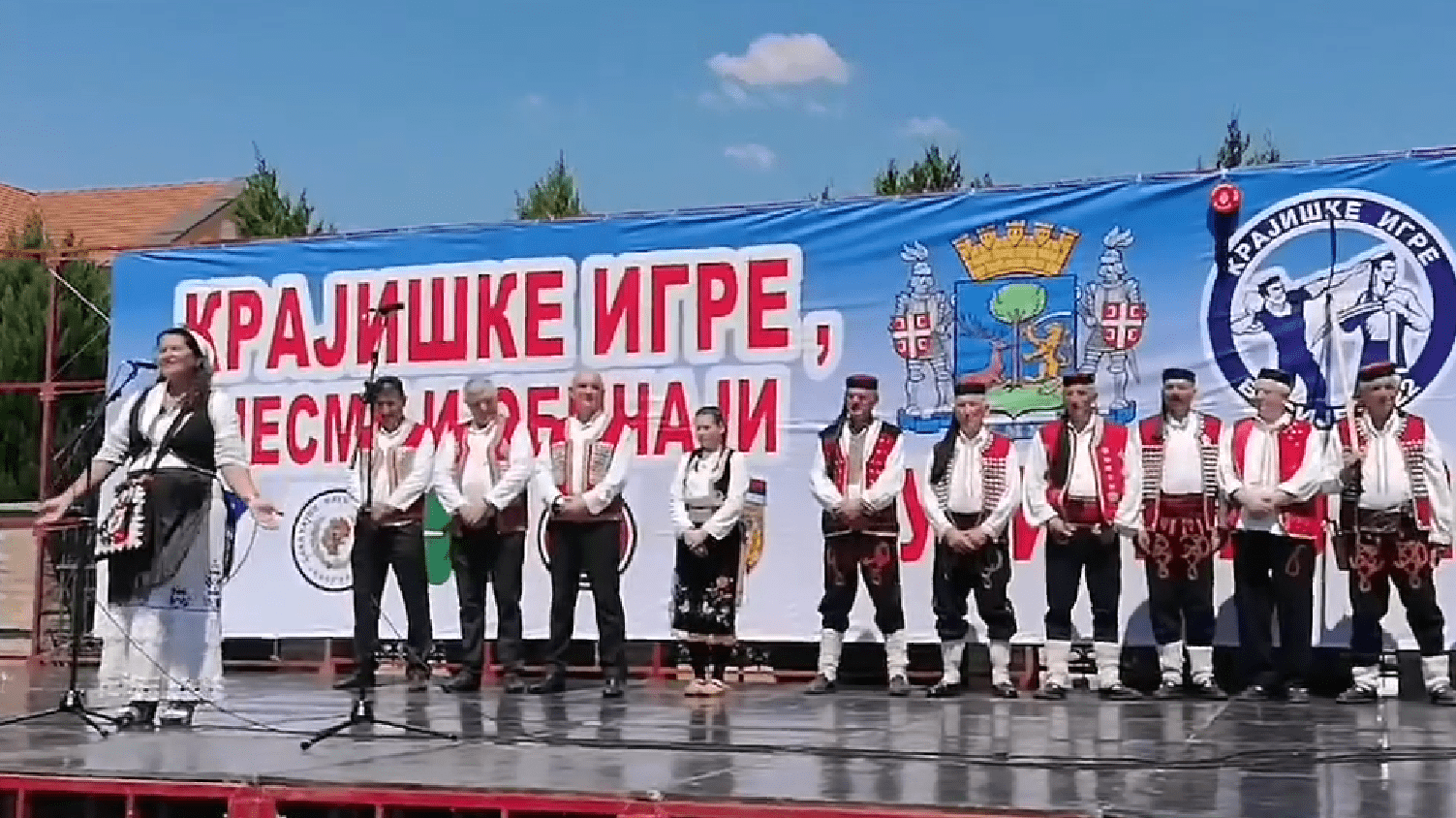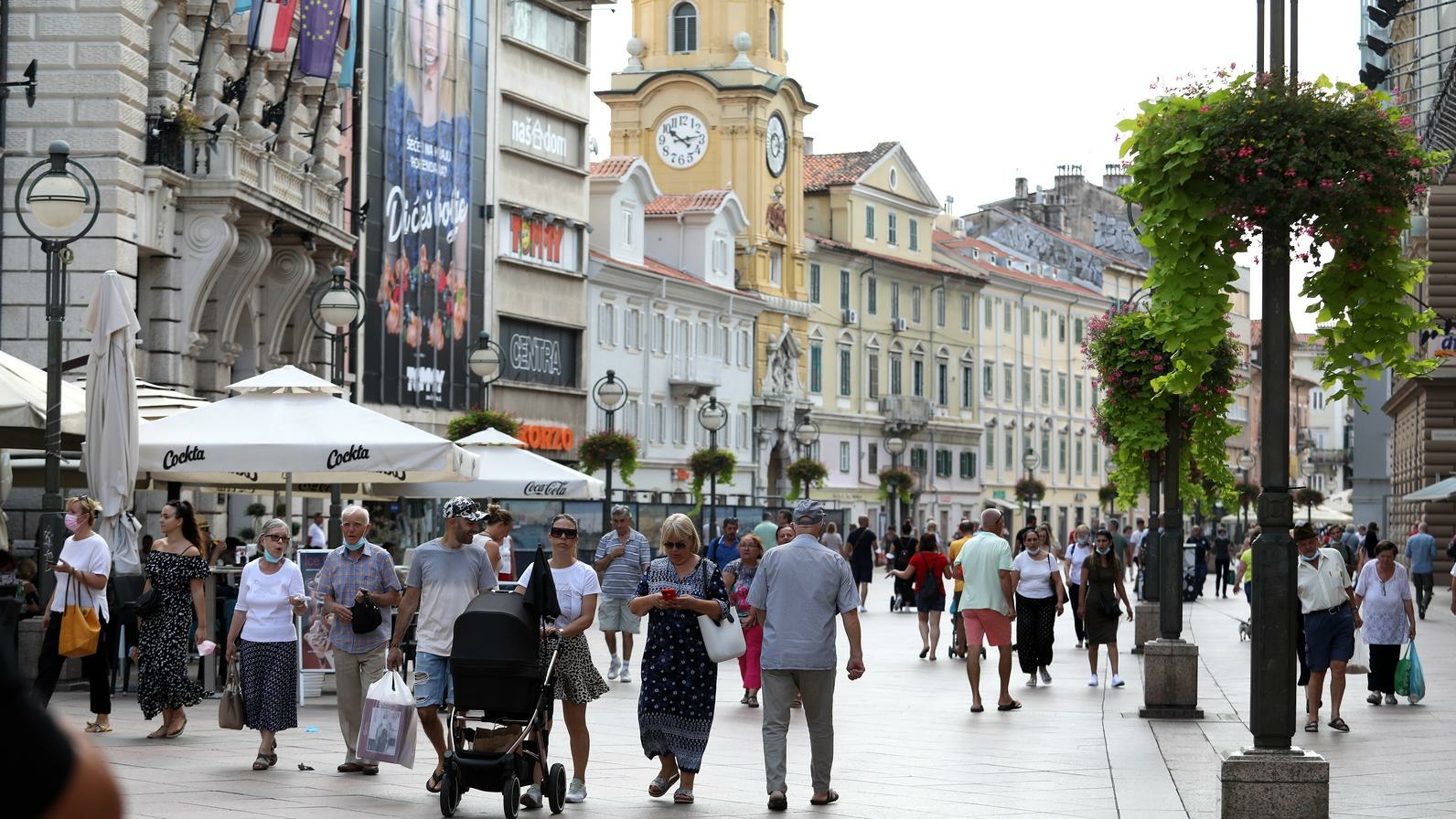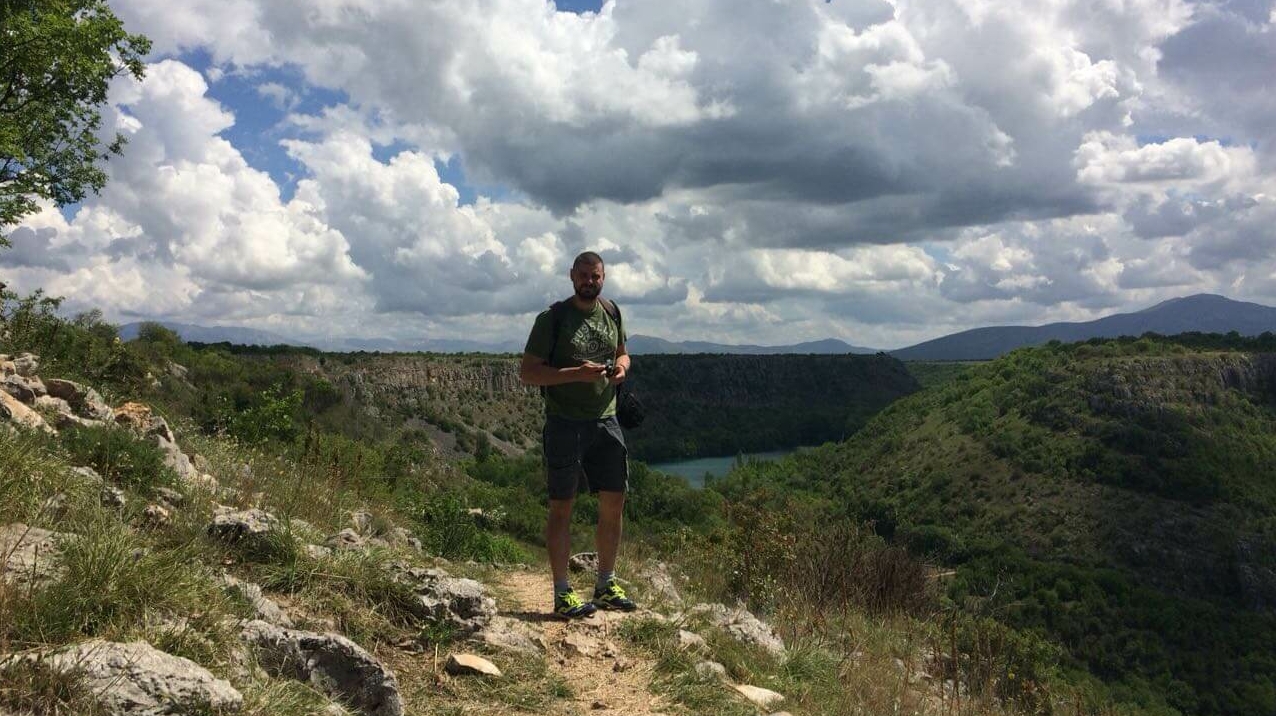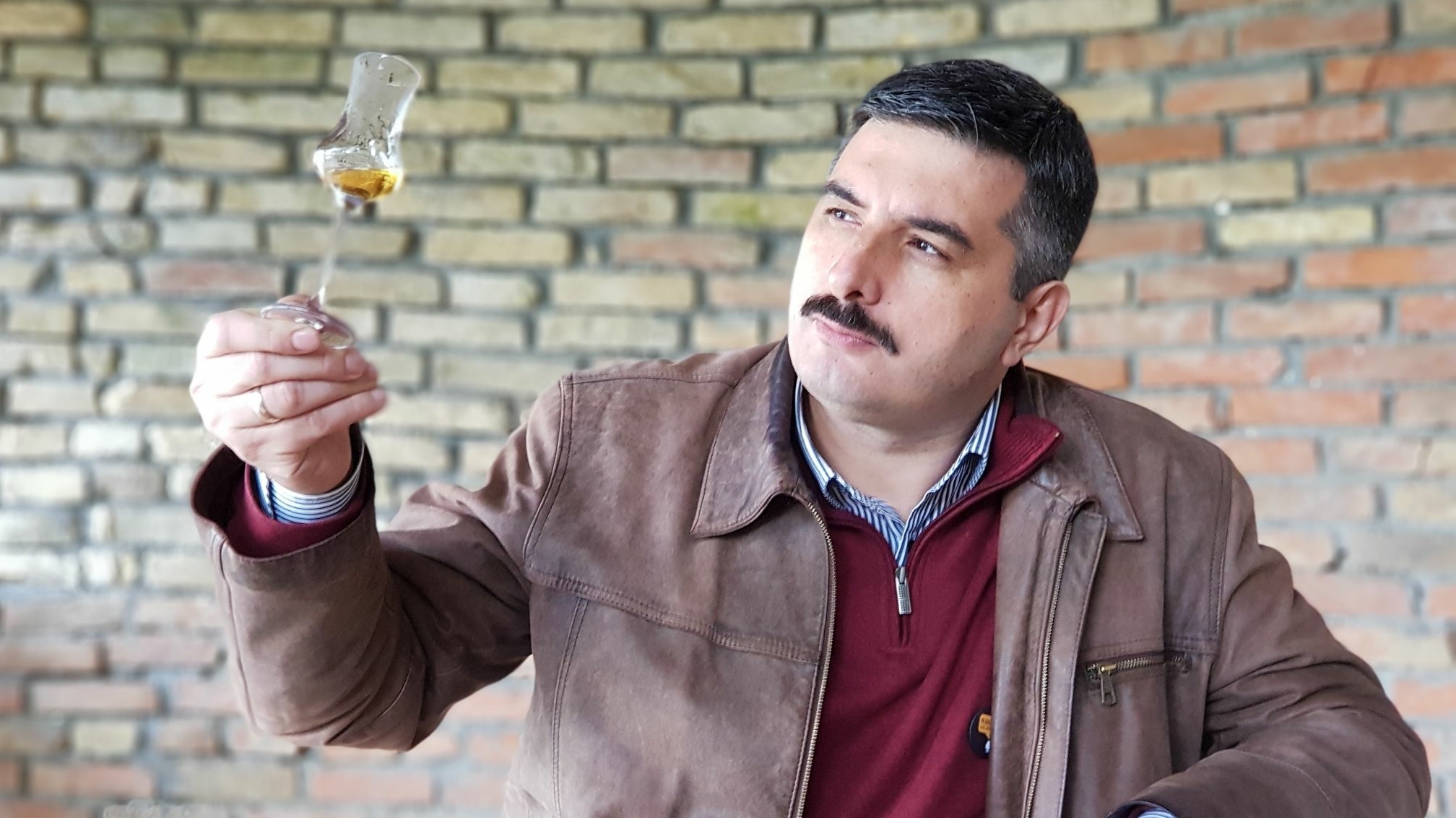The neighborhood of Busije, a part of the Zemun Municipality, is mostly inhabited by people who fled Croatia and Bosnia and Herzegovina in the mid-1990s. The event The Games, Songs and Customs of Krajina, held here for thirteen years in a row, was created to help people remember the customs, songs and games of their native region and to introduce the younger generations to their rich cultural heritage.
Nenad Abramović, the president of the Zavičaj – Belgrade Association of Refugees, Displaced Persons and Immigrants, the main organizer of this event, says that the idea for an annual event came spontaneously from a group of enthusiasts.
“We upgrade the event every year. This year, we were able to get the Zemun Municipality interested in the event, and they helped organize it, and next year we hope the City of Belgrade will. There are a lot of us here. This means something to people. They unwind, give vent to their emotions and are joyful. I remember when I was little, and my grandmother would take me to the celebration of the Uprising Day of the People of Croatia in Banski Grabovac – people would sing one song in this corner and another in that, and so on. We try to do the same here. The space here is small, but this certainly means a lot to people. The tradition of Krajina is great, colorful and diverse and has enriched the culture of both Belgrade and Serbia,” Nenad Abramović says to P-portal.
He reminds us that the Association Zavičaj – Beograd was founded to bring together “our” people from Republika Srpska, Croatia and Kosovo and Metohija who came to Belgrade.
“We were established to solve the problems of this population, preserve identity, help people who came here to integrate, and, as much as we can, the people who return. And, of course, we nurture a culture of remembrance of all the people who lost their lives. Sadly, the war was horrible and cruel, and many people were killed. There is a monument here in Busije to all the people from Krajina who were killed. We express our sympathy for all the victims, from all sides. That is our goal and our statutory duty. We also try to reconcile the people through all this, as much as we can,” Abramović says and adds that the association carries out projects, including EU projects.
“We are active in Belgrade because Belgrade was once a forbidden city for us when we came here. Now, we proudly say that Belgrade is our city, too, and that is why we are here and are not going anywhere. There are 300,000 people from Krajina in Belgrade, and our voices must be heard as well. We, people from Krajina, have our own distinct problems that we try to solve; we have problems back home as well. We managed to build our neighborhoods on the edges of the city and raise our families. People from Krajina are in all spheres of society today, from sports and politics to science and so on,” Nenad Abramović points out.
Authentic tradition
As in previous years, many locals gathered in Busije this year, but many also came from other parts of the country to spend time with others and nurture the memory of their native region. People from different generations came, and one of them was Dragana Bijić, a Sisak native who lives in Pančevo.
“I came to Busije because I like these customs and wanted to see the program. This event means a lot for the preservation of our customs and their transfer to younger generations. I am from Banija, so Banija customs are dearest to me. I love them all, but Banija customs especially.”
Various folklore societies performed different songs and dances on the stage in front of the entrance to the church in Busije. One of them, the Batajnica Folklore Society from Batajnica, enacted a part of a wedding custom from Bukovica and performed folk songs and dances.
Milan Mutavčić, the art director of this folklore society, says they ensured their performance was as authentic as possible, without the addition of any new steps, parts of songs or customs.
“We reenacted the customs in their original form – the way they used to be. Most of the members of our Batajnica Folklore Society are from across the Drina, and many of them are from Bukovica and the neighboring parts of Kninska Krajina. My mother’s family is from that area. Some ten years ago, in my work on folklore, I came across this piece of our traditional heritage. I liked it very much and wanted to work on it and prepare it for the stage. I believed I owed it to my origins but also to my friends,” he says to P-portal.
He adds that the choreography they performed this year won second place in the category of original choreographies in a competition at the level of the City of Belgrade in 2017.
“The customs we showed are of a humorous nature. You could see two brides at one moment. That used to be quite common. Sometimes that first, false bride was a man dressed up as a woman. There was joking and pranking. The dance itself is not particularly specific to Bukovica since the whole Dinaric region of Krajina and Bosnia has this firm style of dance, danced on the whole foot without much music. Dances from this region do not have overly complicated steps due to the terrain there – the karst of Krajina is not very suitable for elaborate choreographies. The song is specific. It has several names. Croatia has managed to register it as its national treasure, but the song is equally Serbian. Some call it ojkača, and we called it orzalica here. It has specific sounds released from the throat. It is special and can be heard nowhere else in the world but in these parts.”
Milan Mutavčić says that the festival The Games, Songs and Customs of Krajina is a very important event that preserves the national being of the people who live here.
“I believe we should always use the opportunity to spread the word about everything that is part of this national being. Only we can preserve it. It won’t preserve itself. If we don’t preserve it – it will disappear.”
Home in the heart
The Zavičaj – Banija Folklore Society from Majur near Šabac presented authentic songs.
“We have been participating in this event in Busije for several years, as well as in other events throughout Serbia. We came from Croatia in 1995, and we nurture our tradition and present our songs. We used to have a lot of young people in our society, but many left for college or got married. We also did dances before, but now we only have a men’s and a women’s singing group. We are known for our authentic traditional songs. We have had a lot of success so far, with first and second places in various competitions. The songs sing about our home and native region that remained there and we brought here,” says our interviewee from the folklore society and stresses how important gatherings like this one in Busije are.
“We attend them to spend time together and to keep the memory of our heritage that we brought here. Societies from all over Serbia come to these events, and we meet each other, which is very important to us. Most of us know each other because we have all performed and participated in these events for many years.”
Combined event – for the most skilled and tenacious
The event in Busije also includes a demanding and interesting competition in combined disciplines – throwing stones from the shoulder, the standing long jump, rope pulling, sack race (for children) and stick pulling. The terrain close to the main stage was full of spectators who were reminded of the same exciting events back home in which they themselves once participated.
“Football was played in tournaments in villages, and we competed in rope climbing and throwing stones from the shoulder. That is tradition. We shouldn’t run from our customs but keep them alive. We all share the same fate; we were all refugees. We come here to meet each other and recall our youth,” says Mladen, who came to Belgrade as a refugee from Split, and who comes to the Krajina Games in Busije every year.
“I love to watch haymaking as well. I don’t do it myself, but I love to watch because it reminds me of my youth and the countryside. There are young people here, too. The young learn from the old. We have to pass things down. The old won’t live forever. What matters here is that we come together every year, remember our heritage and forget our troubles.”
His friend Sveto, from the Knin area, also says that he attends the event every year. He loves to watch the combined event and adds that the most interesting event for him is the haymaking competition. Sveto explains that the haymakers control the volume, quality and speed of haymaking. Every contestant gets the same surface area to mow, and the winner is the first one to mow it following the rules. The best haymakers, our interviewee recalls, were always esteemed in the whole community and especially – among girls.
“It reminds me of back home. I love to be here because I feel somehow younger, by at least thirty years.”
A successful contestant in throwing stones from the shoulder and the standing long jump was Aleksandar Bundalo. The athlete from Ruma says that the combined event used to attract more spectators and offer stronger competition.
“We who compete today had better results in earlier years. The younger generations don’t follow combined events, and there is no one to take our place. These games require ability. If we look at teams, the best in the combined event is Aleksandar Krajišnik from Šabac, who is best in the standing long jump and high jump and is also successful in stick pulling and throwing stones from the shoulder. Miloš Marković from Ruma is also successful – he has been the stone-throwing champion for over ten years. All three of us were born in Serbia, but our families are from Krajina and Lika. Our grandfathers went to these games in their youth, and we remember their stories from our childhoods.”
Aleksandar says that both Krajišnik, Marković and he are former athletes, quite successful in their disciplines, so it was natural for them to compete in this event.
“Good results have kept us going. Some come and give it a try, see that they can’t win medals or achieve good results and then don’t continue this tradition. They lose motivation.”
He also informs us that, apart from the games in Busije, these old disciplines are kept alive at the best-known competition in Serbia – the Lika Olympics in Apatin, which have been taking place regularly for over a decade. Combined events in Bukovac, Banatsko Veliko Selo and Kikinda also have a long tradition, but they weren’t always held regularly in earlier years.
Aleksandar Bundalo says that the future of combined events in Serbia depends on the people who organize such events.
“Busije is certainly a place where people from those regions live, and they love these events. With them managing the organization, this should continue.”
A record for future generations
On the warm June afternoon, the visitors of the event in Busije could find refreshment under a large marquee. The stands offered authentic souvenirs, T-shirts, caps, sweets… The book Tokom Zrmanje (Along the Zrmanja River) by Koviljka Zelić could also be found there. The author says she was especially motivated to write about her native region.
“I am from the Obrovac Municipality. I live here and often go there because all my ancestors, both from my mother’s and father’s side, were born there. I was born there, too, but moved to Belgrade in the 1990s. I wrote this book with much love and joy as a bequeathal to young people. I reconciled the educational and the emotional in the book. I wrote about Stojan Janković, the Krupa Monastery, Obrovac, Medakovići… I included the area from the source to the mouth of the Zrmanja. I primarily dealt with Serb places and history.”
Out interviewee stresses that the Busije event The Games, Songs and Customs of Krajina is very important because it brings people together and reinspires and confirms identity.
“It’s important to people to see each other here, talk and recall these things. We have to preserve it all in some way. I believe that all this concerning our customs will be preserved only if someone works on it.”
Translation from Croatian: Jelena Šimpraga
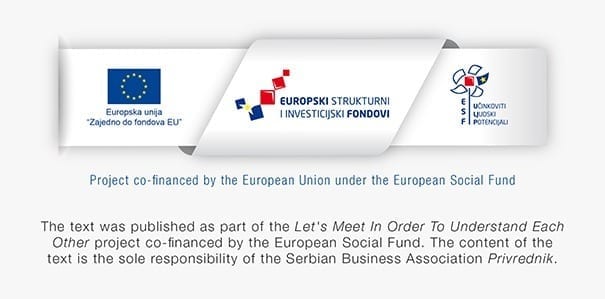
This post is also available in: Hrvatski

